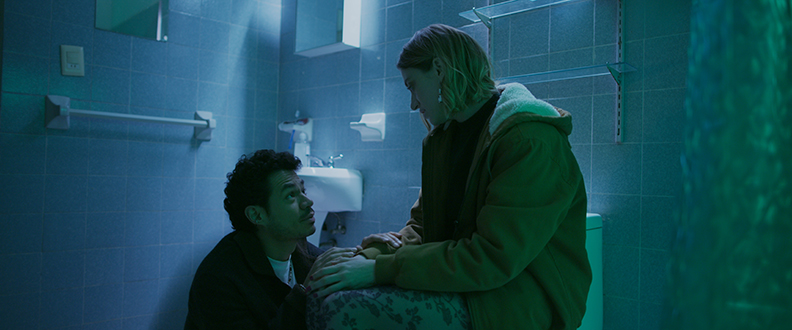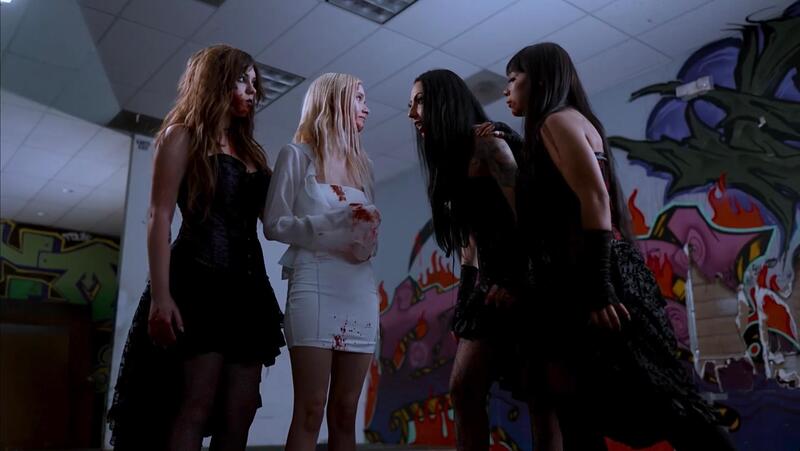
The Way We Love, the Way We Change
MOVIE REVIEW
(Don't Know) How to Be
–
Genre: Comedy, Drama, Romance
Year Released: 2025
Runtime: 1h 25m
Director(s): Salvador Espinosa
Writer(s): Tato Alexander
Cast: Tato Alexander, Memo Villegas, Arcelia Ramírez, Gerardo Trejoluna, Flor Benitez
Where to Watch: shown at the 2025 Austin Film Festival
RAVING REVIEW: There’s a quietly terrifying moment in adulthood when you realize people expect you to have a roadmap for who you are and what you want — and worse, that you’ve internalized those expectations without ever questioning whether they’re truly yours. (DON’T KNOW) HOW TO BE takes that moment and stretches it over one emotionally loaded evening, turning a birthday visit into a confrontation about identity, love, and what it means to exist confidently in a world where everyone thinks they know what’s best for you.
The film centers on Majo and Cris, a couple in their thirties who seem to be in that relationship phase where “next steps” hover uncomfortably in the air. Majo arrives at her parents’ home, hoping this birthday celebration will double as a proposal, a milestone she’s been told should be a measure of happiness and long-term success. Cris, meanwhile, is comfortable with the relationship but doesn’t buy into marriage — a stance rooted in modern, evolving beliefs but complicated by his own struggle to articulate what commitment means to him. That disconnect sparks the film’s entire unraveling.
What director Salvador Espinosa does brilliantly is treat the scenario not as a romantic comedy misunderstanding, but as a larger interrogation of how generational ideas shape our personal lives. This isn’t just about whether Cris pops the question — it’s about the gulf between millennial anxieties and the convictions held by parents who believe tradition exists to protect us from chaos. These worlds collide over dinner, drinks, and escalating tensions, until facades break and each character is forced to reckon with the difference between who they are and who they’ve pretended to be.
Tato Alexander, who also penned the script, leads the way with a performance that feels unvarnished — grounded in humor but unwilling to sugarcoat disappointment or confusion. Her portrayal of Majo avoids the tired trope of the desperate-to-be-engaged girlfriend. Instead, she embodies someone trying to prove she knows her place in life, even while silently terrified that she doesn’t. Memo Villegas matches her with a performance that captures the frustrating contradictions of modern masculinity — wanting independence, wanting love, wanting to be understood, yet struggling to define any of it.
Arcelia Ramírez and Gerardo Trejoluna deliver lived-in portrayals as Cris’ parents — products of an era where marriage equaled stability and identity was rarely a fluid concept. Their presence isn’t antagonistic; they’re convinced they’re supporting a future they trust. Through them, the film highlights how parental guidance can feel like emotional surveillance when perspectives don’t align.
What makes the storytelling resonate is that Espinosa and Alexander allow for improvisation within a carefully rehearsed structure. The result is a hybrid theatricality where the camera becomes another guest at the table — capturing restless hands, shifting glances, and small gestures that reveal far more than dialogue ever could. When arguments erupt, it feels uncomfortably familiar — every person is convinced they’re right, because every person believes they’re the one fighting for love and authenticity.
A particularly strong idea the film explores is how adulthood has shifted: older generations often tied identity to roles — spouse, parent, provider — whereas younger generations seek identity first, with roles as an optional result. Neither approach offers immunity from confusion, and the film finds empathy in that shared uncertainty. The story occasionally narrows its focus so tightly around its core thesis that some side relationships feel underexplored. A deeper look into the parents’ internal struggles or into Cris’ emotional history might have amplified the already strong themes. The specificity of this one-night pressure cooker gives the film a clear emotional spine, even if it leaves a few character corners in shadow.
(DON’T KNOW) HOW TO BE succeeds as a comedy not because it mocks discomfort, but because it treats discomfort as universally human. It doesn’t aim to deliver the perfect answer to how we’re supposed to navigate life — instead, it assures us that feeling lost is a condition shared by every generation. And maybe that’s what allows us to laugh: not at each other, but alongside each other, even when we’re questioning everything. A deeply human, sharp, and funny debut for audiences and a film that embraces uncertainty with compassion, leaving one final thought echoing long after the party ends: maybe the bravest way to be is admitting we’re still figuring it out.
Please visit https://linktr.ee/overlyhonestr for more reviews.
You can follow me on Letterboxd, Instagram, Twitter, and YouTube. My social media accounts can also be found on most platforms by searching for 'Overly Honest Reviews'.
I’m always happy to hear from my readers; please don't hesitate to say hello or send me any questions about movies.
[photo courtesy of IDA FILMS]
DISCLAIMER:
At Overly Honest Movie Reviews, we value honesty and transparency. Occasionally, we receive complimentary items for review, including DVDs, Blu-rays, CDs, Vinyl Records, Books, and more. We assure you that these arrangements do not influence our reviews, as we are committed to providing unbiased and sincere evaluations. We aim to help you make informed entertainment choices regardless of our relationship with distributors or producers.
Amazon Affiliate Links:
Additionally, this site contains Amazon affiliate links. If you purchase through these links, we may receive a commission. This affiliate arrangement does not affect our commitment to honest reviews and helps support our site. We appreciate your trust and support in navigating these links.



Average Rating